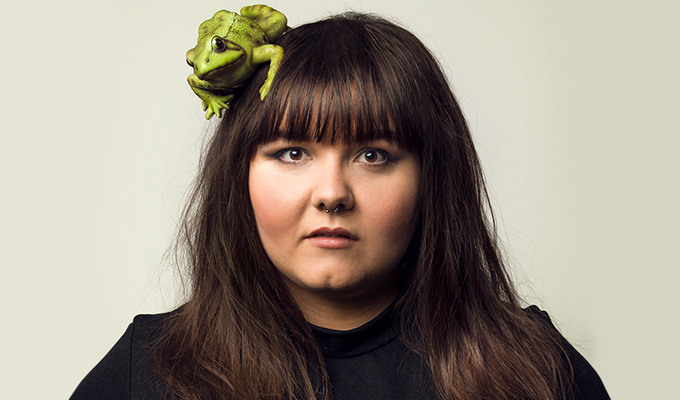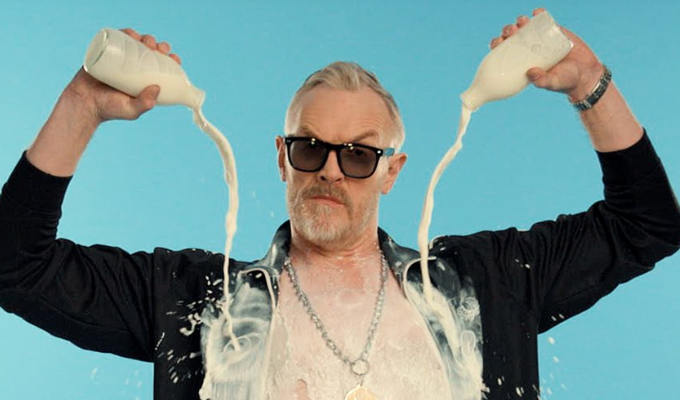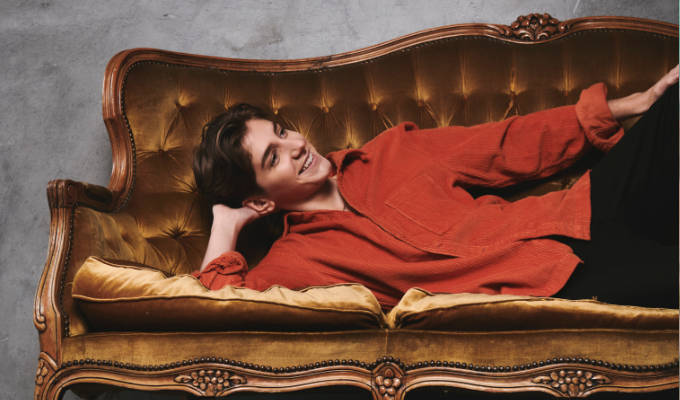
Sofie Hagen: Dead Baby Frog
Note: This review is from 2017
Edinburgh Fringe comedy review by Steve Bennett
Therapists love Sofie Hagen, since she offers them such textbook examples of formative experiences.
Last year, a villain of her piece was her estranged father; this year it’s all about her maternal grandfather, or ‘mum-dad’ as it’s charmingly translated from her native Danish.
She was largely brought up by him and her ‘mum-mum’ in a remote Danish community with a name that seems torn out of a quirky indie film: Skamstrup, or, literally, ‘Shame Town’. Oh, the issues!
Her grandfather, Ib, was an old Nazi (there were a lot of them around in the Denmark of his youth), and, more directly concerning to Hagen, a controlling and emotionally abusive man.
The title refers to the ‘boiling frog’ experiment so often used as an analogy: if you place a frog in boiling water it will immediately jump out; but place it in lukewarm water and incrementally increase the temperature, it will supposedly not notice, and remain there until it boils alive. Similarly, the slow, steady drip of narcissistic Ib’s subtle undermining of his family erodes their confidence. It’s so not hygge.
In contrast, the women in Hagan’s life tend to be much stronger figures, making Dead Baby Frog an interesting and vivid portrait of a dysfunctional family. She explains how suppressing her emotions came out as anger issues later in life, and ties this to another strand about body issues, prompted by hearing a male comic dismissing ‘fat-phobia’ at last year’s Fringe.
Despite the subject matter, she delivers it all cheerily, celebrating moments of feminine sass and getting laughs at her grandfather’s expense, especially his exaggerated war stories. That upbeat disdain is what stops Dead Baby Frog becoming an earnest storytelling show, although it sometimes slips in that direction. It’s cathartic for her to tell us how awful Ib was, and validates her hatred for him when the audience agree he was a shit.
As an antidote to his mean-spiritedness, she is warm and affable, greeting us with a big smile on the way in as she hands out trigger warnings (she’s a proudly ‘woke’ comedian) and suggestions for other shows you might like to see. She’s mildly self-deprecating, but remains stage-confident (despite her 2016 show about her anxiety off-stage), and is clearly very happy to be getting her truth out to the world.
Story-wise, Hagen fudges over a couple of missing narrative steps to get to the positive ending, but it neatly wraps up all the threads and ideas unspooled earlier. And it makes the show a speedy, feelgood hour, which might be surprising when you consider the horrid man at its heart.
Review date: 4 Aug 2017
Reviewed by: Steve Bennett









